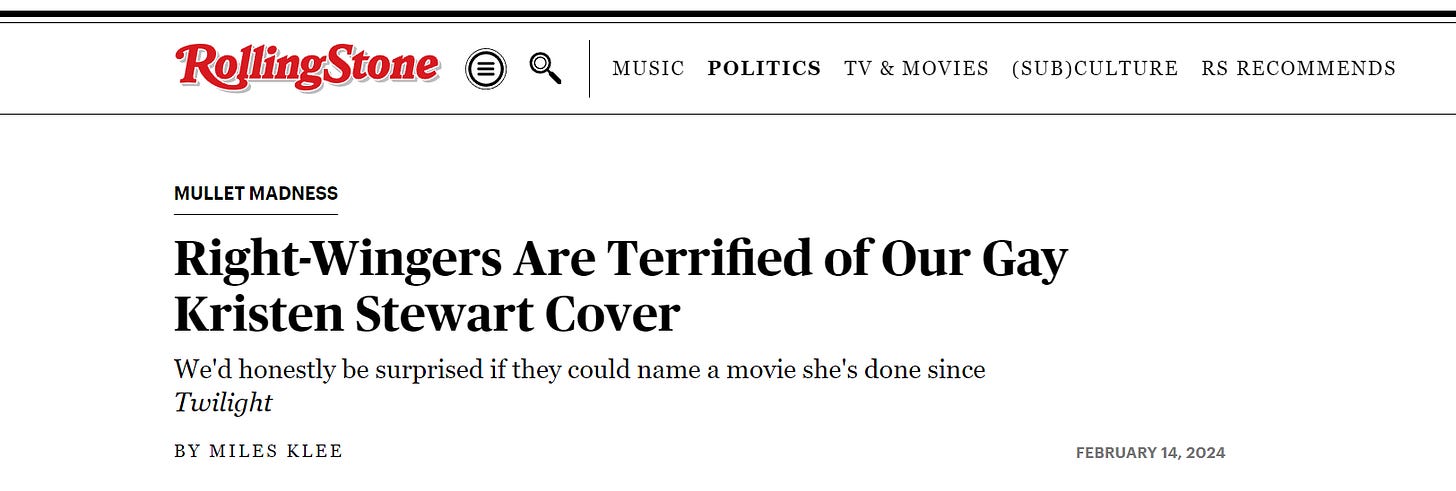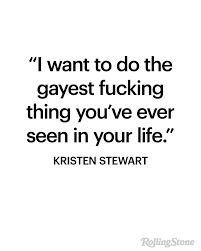The Commodification of Queer Culture is Almost Complete
it's not just rebellion brought to you by Pepsi, it's generations who don't understand that there could be any other kind
Imagine that you’re Rolling Stone. You’re a decaying music magazine, about as intense as a CBD lozenge, that built an empire by giving Mick Jagger solo albums five stars and running ads for glow-in-the-dark posters. Now you find that you must pivot to hiring recent Bowdoin grads to churn out pieces about how Olivia Rodrigo serves cunt or whatever the miserable fuck people are babbling about these days. (It’s so bizarre; we have a liberal commandment against cultural appropriation, but also every boring missionary-position-exclusive 33-year-old white woman who works in marketing talks online like she’s in the House of LaBeija.) Anyway, you want to cynically provoke culture war to shill your wares, and the big dipshit mass of NPR liberalism is just sitting there, eager to be manipulated. So you put a huge star on your cover and let her engage in the mind-meltingly self-involved act of saying that it’s the gayest thing ever. (Not Djuna Barnes, not Oscar Wilde, not Gladys Bentley, not James Baldwin, no, it’s Chanel Ambassador Kristen Stewart who’s the final boss of being gay!) What do you have to lose? Your reviews have been minimally-rewritten press releases for 20 years.
You already know it by heart, the general pattern of this tired cycle. Rolling Stone is a magazine long associated with boomer men that has attempted, in recent years, to effect a market correction by self-consciously courting the very hot LGBTQ+ and POC consumer demographics. A couple weeks back they unveiled a new photo shoot with actress Kirsten Stewart. The actual photos are pretty tame, but they come packaged with a repetitive reminder that Stewart is gay. Gay gay gay gay gay. Being gay in American music media in 2024 is about as edgy as pea soup, obviously. I understand that people will get mad to hear that, but they also know that I’m correct. It’s definitely still risky to be gay in many parts of the country and the world, like physically risky. More risky, I think, then we typically acknowledge. But it’s not risky to be gay on the cover of a progressive magazine as a rich, white, able-bodied, stunningly beautiful cisgender woman. It’s not! You, reading this right now, don’t think that it is! No one thinks that it is! But this urge, the urge to insist on political edginess and extremity in defiance of all sense, says a lot about the relentless march of the commercialization of marginality. I guess there’s still dollars left to be rung out of LGBTQ identity.





